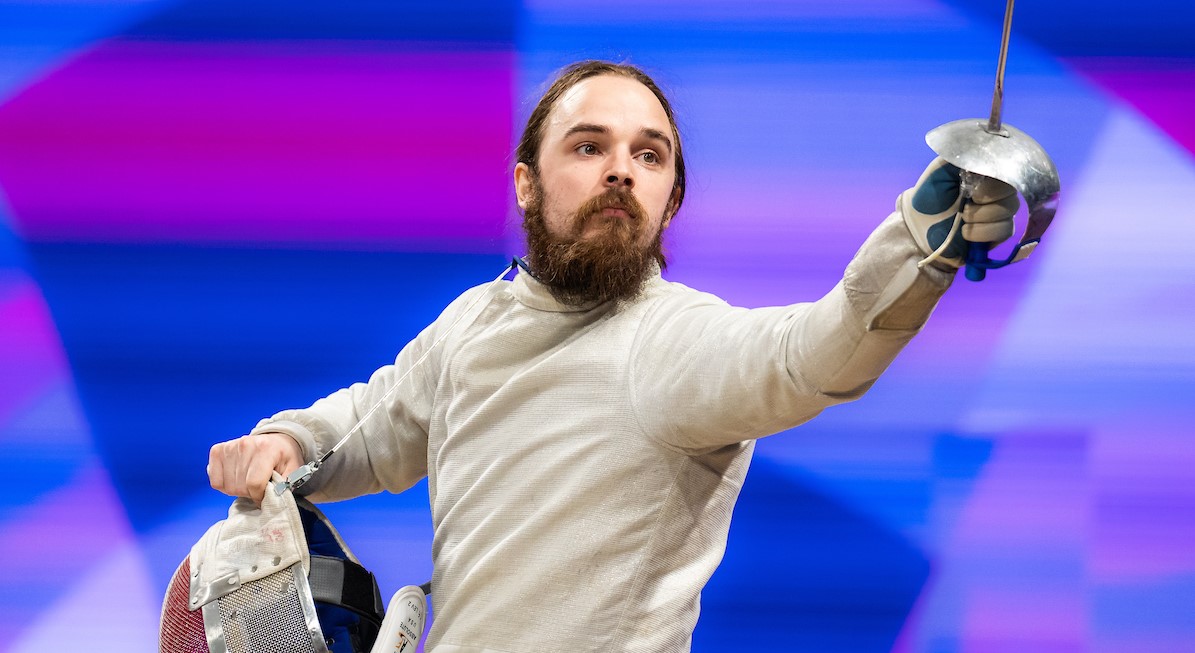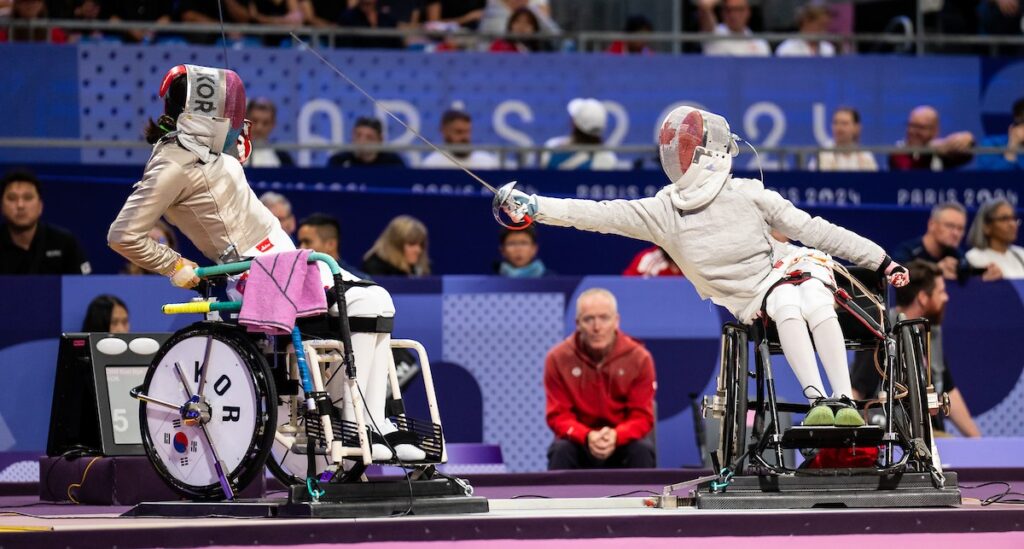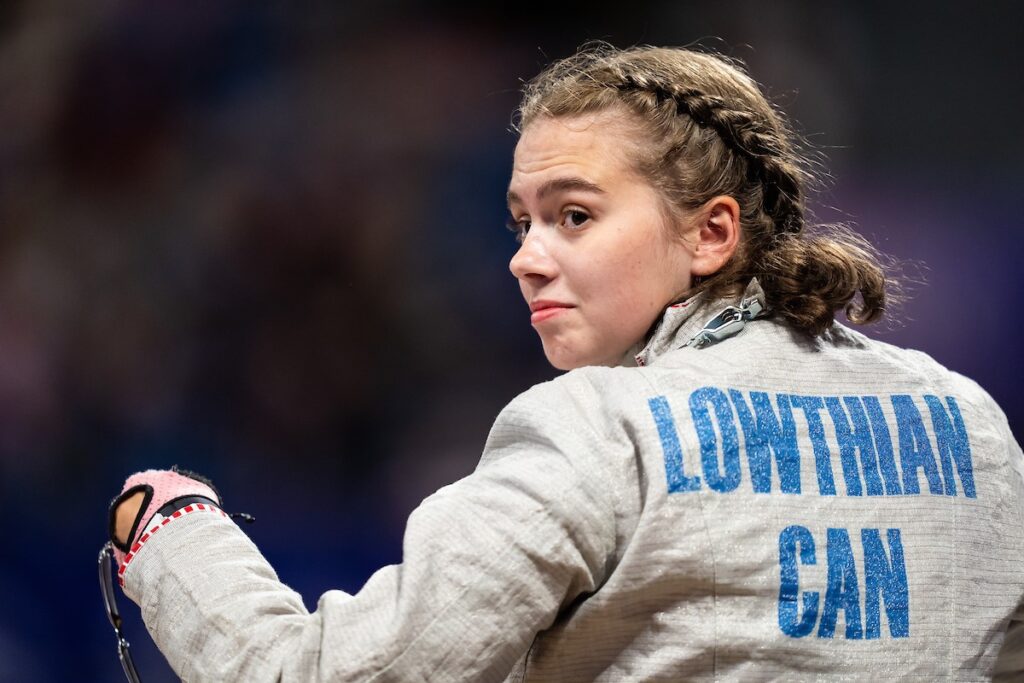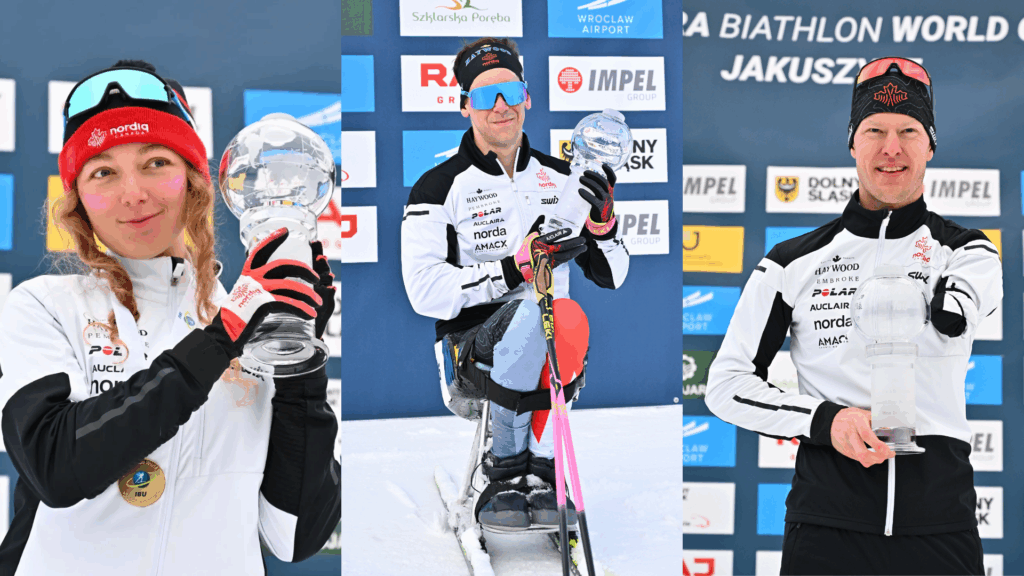Paralympic Games notebook: Canadian wheelchair fencers exemplify Paralympian passion
‘’Niche sport’’ opens new world to Lowthian and Rousell

PARIS – Ryan Rousell and Trinity Lowthian could talk all day about their sport: wheelchair fencing.
Whether it’s after a stressful battle or even between bouts, the passion these two young Canadian athletes show for this historic sport is infectious. That was obvious once again at the 2024 Paralympic Games as wheelchair fencing took centre stage at the Grand Palais in the heart of Paris.
‘’It’s one of those niche little sports,’’ said Lowthian, who made her Paralympic Games debut in Paris. ‘’I chose fencing as my next kind of conquest and what I like about it is there is something new and challenging each time.’’
Wheelchair fencing was one of the eight sports included at the inaugural Paralympic Games in 1960 and has been featured at every summer Games since. Ninety-six wheelchair fencing athletes competed in 16 medal events at Paris 2024. There are two disability categories in the sport for men’s and women’s epee, sabre and foil.

The able-bodied version traditionally attracts swords people from more than 100 countries, one of the few sports to achieve that feat, at its world championship. The sport is particularly popular in France where tales of heroic swashbucklers, first in epic novels, then film, have thrilled audiences for centuries. That tradition was evident at the Paralympic Games with a packed Palais each day.
Canada has never won a wheelchair fencing medal at the Games but Lowthian came the closest with a remarkable fifth place finish in women’s epee at Paris 2024 winning two of her four matches (she beat the number-two and three ranked players in the world).
Conquests are nothing new for Lowthian.
A talented athlete in various sports, her world was rocked while in high school. She was diagnosed with autoimmune autonomic neuropathy and completed her final high school year from a hospital bed. It was following her recuperation that she discovered the unique world of wheelchair fencing
Now her involvement goes beyond the playing field.
The 22-year-old nutrition student at the University of Ottawa, also leads the TRYumph Gymnastics Academy’s wheelchair fencing program, which has integrated with the Ottawa Fencing Club to promote inclusivity and provide opportunities for athletes with disabilities.

She has been instrumental in building the wheelchair fencing community in Ottawa, securing funding for equipment and training programs through grants like the Paralympic Sport Development Fund. Her efforts have significantly contributed to the growth and sustainability of the sport in her region.
‘’I’m really trying to grow it,’’ said
‘’I really want to give others the opportunities that I’ve had in the city of Ottawa and beyond. It’s huge here in Europe, I’ve gone to camps and competitions here and there’s so much that goes into it.’’
Rousell, born prematurely and diagnosed with cerebral palsy which affects his motor skills on his right side, started in able bodied fencing at age seven. The 27-year-old acquired an early admiration for the sport through films like the Princess Bride.
He was discovered by his current veteran teammate Sylvie Morel who told him when he was a teenager he possessed the skills to one day go to the Paralympic Games.
‘’Before you knew it I was on a flight to the Netherlands for a competition,’’ he recalled. ‘’I just got hooked after that tournament. I realized this is not a secondary sport. Para sport has its own intensities, its own challenges and its own whole story.’’
Rousell, 27, at his second Games, says mastering the basics is the key to success in wheelchair fencing.
‘’Everything becomes possible when you understand the basics of the sport,’’ he said. “We’re talking about attacks, error riposte, retreating and counterattack. All the different kinds of parry and positions. You need to have the ability to actively think and change their strategy as they fence.’’
While it takes years of practice to become a maestro in the sport training also requires hours in the gym each day to chisel the perfect build.
‘’It’s very important to keep yourself fit and toned,’’ Rousell said. ‘’So my training is basically pull ups, push ups, plank, things that require body motion because the sport is much short bursts of energy. Timing is everything and there is a very small window to score a touch.
‘’Yoga is also very good because flexibility is very important in the chair and you’ll notice the athletes how far they can bend backwards.’’
With Rousell and Lowthian now in the front seat, Canada’s fortunes in wheelchair fencing are clearly on the rise.



"*" indicates required fields
"*" indicates required fields